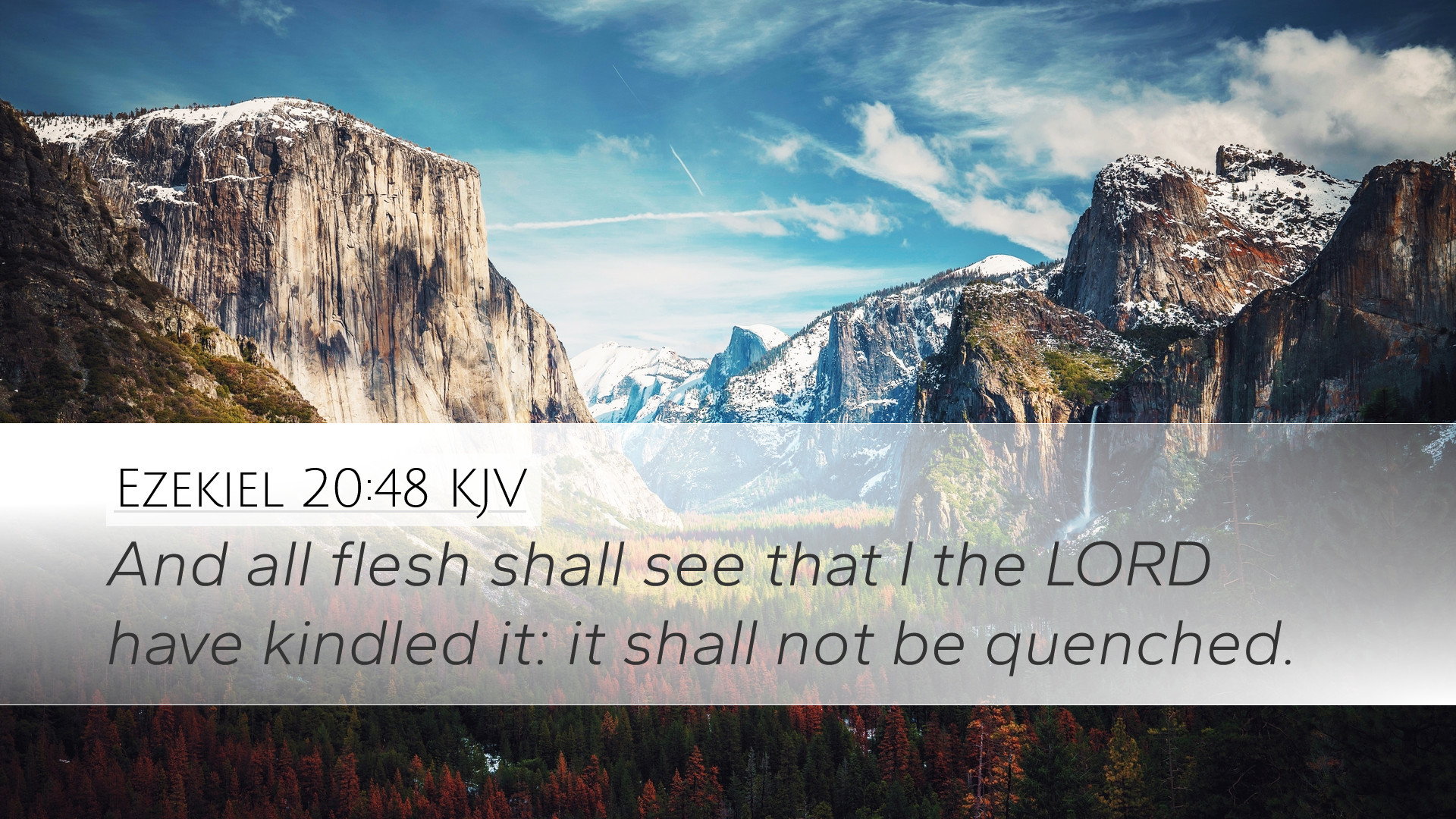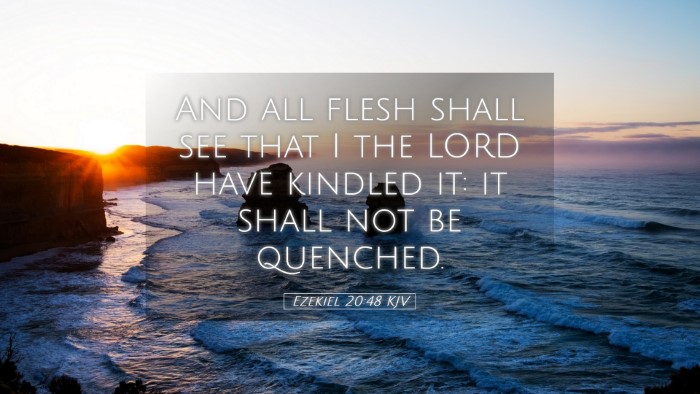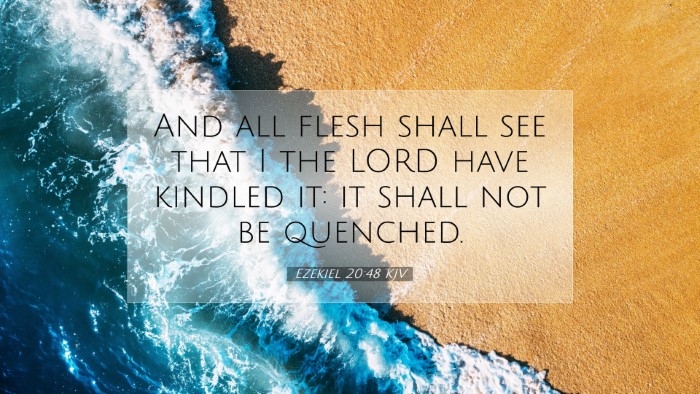Bible Commentary on Ezekiel 20:48
Ezekiel 20:48 reads: "And say to the forest of the south, Hear the word of the Lord; Thus says the Lord God: Behold, I will kindle a fire in you, and it shall devour every green tree in you, and every dry tree; the blazing flame shall not be quenched, and all faces from the south to the north shall be scorched by it."
Context and Overview
Ezekiel, a prophet during the Babylonian exile, often used vivid imagery to convey God's messages to His people. In this verse, the imagery of a forest represents the inhabitants of Jerusalem and Judah, which were marked by rebellion and idolatry. The "fire" symbolizes divine judgment and purification. This section of Ezekiel follows God’s declaration of judgment, addressing both the rebellious nature of Israel and the impending consequences on the land and its people.
The Fire Imagery
The metaphor of fire in biblical literature often represents God's judgment and the purifying power of suffering. According to Matthew Henry, the flames signify destruction that brings about a cleansing process, burning away the corrupt and idolatrous practices that had taken root among the people. This fire serves a dual purpose: as a means of judgment for the wicked and as a method of refinement for the faithful. This interpretation resonates strongly throughout the book of Ezekiel, where several instances highlight the necessity of divine judgment as a precursor to restoration.
Symbolism of the Trees
The “green trees” and “dry trees” represent the righteous and the unrighteous, respectively. Albert Barnes notes that the green trees symbolize those who appear to be alive in faith and good works, while the dry trees symbolize those whose lives lack spiritual vitality. This duality indicates that judgment does not only fall on the outright wicked but also on those who, despite outward appearances, do not bear fruit for God’s Kingdom.
The Theological Implications
This verse raises profound theological questions regarding judgment, mercy, and the nature of God’s righteousness. Adam Clarke emphasizes that God's intention is not merely destruction but the ultimate goal of repentance and restoration. The passage encapsulates the tension between God’s justice and mercy, demonstrating that divine justice may necessitate severe measures to redirect His people back to righteousness.
The Transformative Nature of Judgment
Judgment, as depicted in Ezekiel 20:48, invites reflection on the character of God as both a loving Father and a righteous Judge. As Matthew Henry suggests, the fire that devours can also inspire rebirth; this reflects the biblical theme of death preceding resurrection. Such themes are echoed in the New Testament, where suffering is often presented as a means to refine believers, preparing them for eternal life.
Application for the Contemporary Church
In today’s context, this scripture compels pastors and theologians to consider the state of the contemporary church. Albert Barnes points out that while God’s judgment is a fearful thing, it serves the purpose of clarifying and purifying the church community. Churches today must examine their practices and commitments, ensuring that they are faithfully aligning with God’s word and mission.
Call to Repentance
- Urgency of Message: The call to "hear the word of the Lord" is urgent. God's word demands a response, and pastors should communicate this urgency in their preaching and teaching.
- Emphasis on Holiness: The imagery of fire also serves as a reminder of God’s holiness. Churches should strive for purity in their doctrines and lifestyles, aligning with the standards set forth in Scripture.
- Hope in Restoration: Even amidst judgment, there is hope for restoration. This should encourage believers that in repentance, there is always the possibility of forgiveness and renewal from God.
Conclusion
Ezekiel 20:48 encapsulates significant themes of judgment, purification, and the consequences of rebellion against God. The imagery used by Ezekiel carries profound implications for understanding God's interaction with His people throughout history. For pastors, students, and theologians, this passage serves as both a warning and a beacon of hope, illustrating that while God's discipline is severe, His desire is always for restoration and a return to righteousness. As we delve deeper into these themes, may we continually seek to understand the balance between God’s justice and mercy in our lives and ministries.


